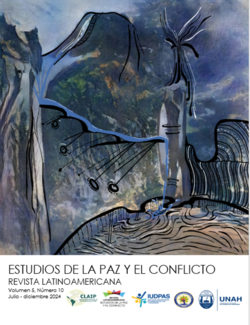The Brazilian military engagement in Haiti through the lens of peace journalism
DOI:
https://doi.org/10.5377/rlpc.v5i10.17675Keywords:
MINUSTAH, Brazil, peace journalism, violenceAbstract
In this paper, we analyze Brazil's military participation in the United Nations Stabilization Mission in Haiti (MINUSTAH), between 2004 and 2017, under Chapter VII of the UN Charter. The contribution of this work lies in the theoretical-methodological framework that guided the analysis – peace journalism – and in the sources mobilized for this purpose – the newspapers of the Brazilian mainstream press, especially Folha de S. Paulo. Based on the content analysis of the aforementioned material, we argue that media coverage prioritized official sources and gave greater emphasis to contextualization elements of the Haitian crisis than to Brazilian military action under a robust mandate. The country's role in MINUSTAH was widely discussed and most of the time it was associated with the command position that would supposedly guarantee Brazil’s international projection. The impacts of MINUSTAH in the Brazilian domestic scenario, especially considering public security operations, received little attention from the newspaper.
Downloads
377
HTML (Português (Brasil)) 42
XML (Português (Brasil)) 12
EPUB (Português (Brasil)) 62
Downloads
Published
How to Cite
Issue
Section
License
Copyright (c) 2024 Latin American Journal of Peace and Conflict Studies

This work is licensed under a Creative Commons Attribution 4.0 International License.
The journal's contents are published under a Creative Commons Attribution 4.0 license (CC BY 4.0). This license allows third parties to share (copy and redistribute the material in any medium or format) and adapt (remix, transform and create from the material for any purpose, including commercial), as long as the authorship and first publication in this journal (Revista Latinoamericana Estudios de la Paz y el Conflicto, Universidad Nacional Autónoma de Honduras - Consejo Latinoamericano de Investigación para la Paz, DOI of the work) is acknowledged, a link to the license is provided and it is indicated if changes have been made to the original. The terms of the license are available online at http://creativecommons.org.




